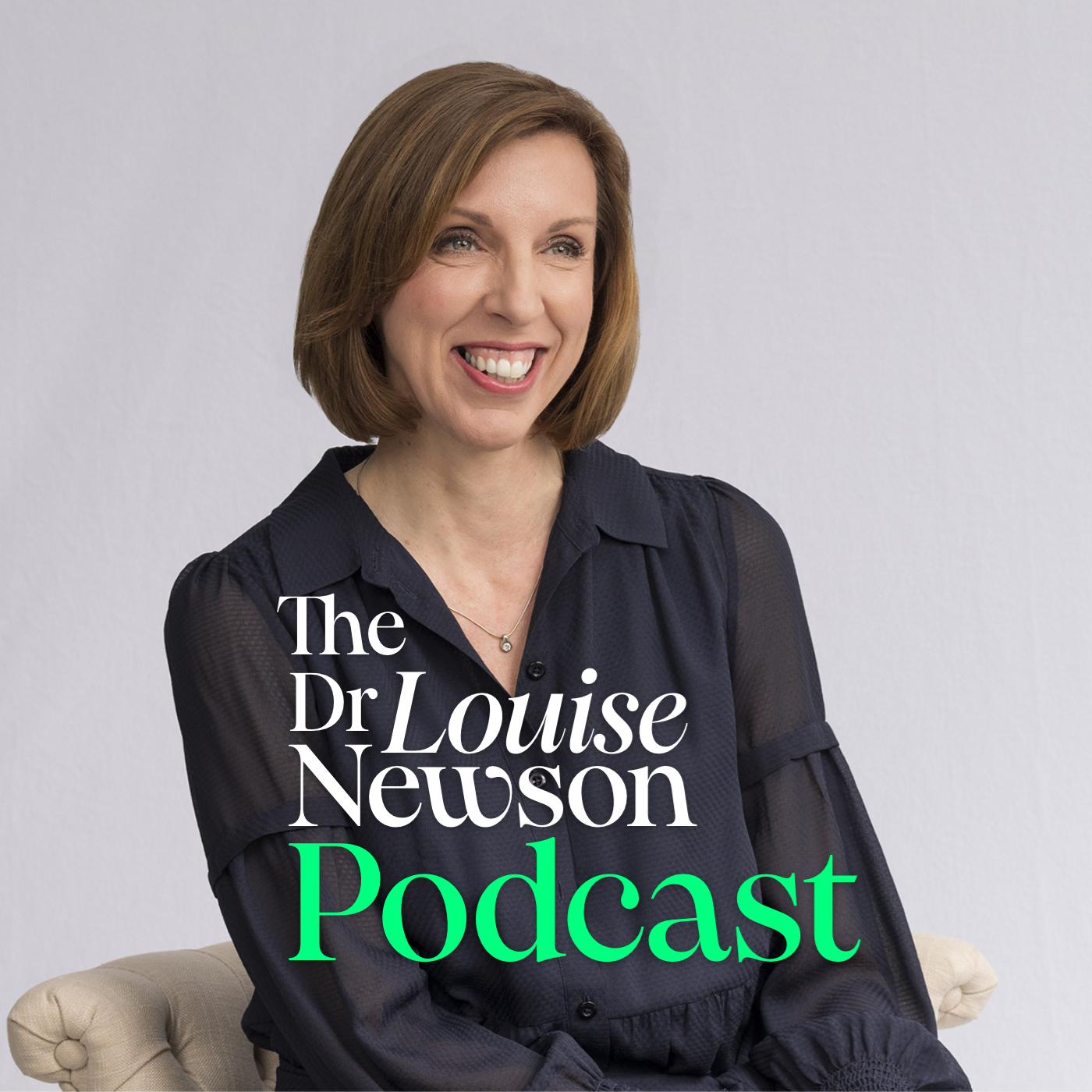
8.5M
Downloads
311
Episodes
Dr Louise Newson is an award-winning physician, respected women’s hormone specialist, educator, and author committed to increasing awareness and knowledge of perimenopause, menopause, and lifelong hormone health. Each week, Louise dives into the newest research, treatments and hot topic issues, providing accessible, evidence-based information to empower your future health. Joined by fellow experts and special guests, with answers to your burning questions, Louise explores how hormones impact every aspect of our lives. Described as the “medic who kickstarted the menopause revolution”, Louise aims to empower a generation of women to have a greater understanding, choice and control over their treatment, bodies, minds and future health through their hormones. She is the creator of the award-winning free balance app, a Sunday Times bestselling author and the founder of the Newson Health clinic. With over three decades of clinical experience, Louise is a member of the Royal College of Physicians, a Fellow of the Royal College of GPs, a Visiting Fellow at Cambridge, a regular contributor to academic journals including the Lancet and the British Journal of General Practice, and has been awarded an honorary Doctorate of Health from Bradford University. DISCLAIMER: The information provided in this podcast is for informational purposes only and is not intended as a substitute for professional medical advice, diagnosis, or treatment. Always seek the advice of your physician or other qualified health providers with any questions you may have regarding a medical condition. The views expressed by guests are their own and do not necessarily reflect the views of Dr Louise Newson or the Newson Health Group.
Episodes

Tuesday Jun 25, 2024
262 - Acne: from teen years to menopause and beyond
Tuesday Jun 25, 2024
Tuesday Jun 25, 2024
This week on the podcast with Dr Louise, Consultant Dermatologist Dr Sajjad Rajpar returns to talk about acne and its effect on women during the perimenopause and menopause, including on their self-confidence and mental health.
Dr Saj explains the causes of acne and the different treatments available, including an encouraging new treatment that could make a big difference to acne sufferers in the long term.
Finally, Dr Saj shares his three tips for anyone who might have acne:
- Keep skincare simple and targeted. Pick one of three active ingredients – retinoids, benzoyl peroxide or azelaic acid – and give it three to six months to work. Only supplement it with a very simple supporting skincare regime.
- Assess the impact of the acne – if it is leaving persistent blemishes, pigmentation or scars, then escalate the treatment. If the first line treatment hasn’t worked, give it three months and see a medical professional to try to get it under control because prevention of scars is so much easier than trying to reverse and cure them.
- Be mindful about all the different risk factors and triggers, and do not underestimate the impact of diet and stress. Where we can treat acne holistically, we should.
You can follow Dr Saj on Instagram @dr.rajpar_dermatologist
There is a chapter dedicated to skin and hair in menopause in Dr Louise’s bestselling book, The Definitive Guide to the Perimenopause and Menopause, which includes expert contributions by Dr Saj. Order your copy by clicking here.
Click here to find out more about Newson Health

Tuesday Jun 18, 2024
261 - Chronic pain and menopause: what’s the link?
Tuesday Jun 18, 2024
Tuesday Jun 18, 2024
About 28 million people in the UK are thought to be living with chronic pain – that’s 43% of the population, according to the 2011 Census.
But what is chronic pain, and how can it overlap with the perimenopause and menopause?
In this week’s episode Dr Louise is joined by Dr Deepak Ravindran, a consultant in pain medicine and author of The Pain-Free Mindset: 7 Steps to Taking Control and Overcoming Chronic Pain.
Dr Deepak unpicks the science behind chronic, or persist, pain and the two discuss the relationship between hormones, inflammation and pain.
Dr Louise and Dr Deepak have co-authored a new article which offers 10 top tips for primary care practitioners on improving care for women with fatigue and/or pain. You can access the article here.
Follow Dr Deepak on YouTube, Instagram, LinkedIn and X.
Click here to find out more about Newson Health
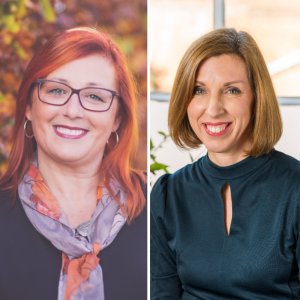
Tuesday Jun 11, 2024
260 - Get comfortable with the uncomfortable: mental health and the menopause
Tuesday Jun 11, 2024
Tuesday Jun 11, 2024
Content advisory: this podcast contains themes of suicide and mental health.
This week on the podcast, Dr Louise is joined by Andrea Newton, a postmenopausal woman whose own experience of mental health during the menopause lead her to train as a tutor with the National Centre for Suicide Prevention Training. Over the last six years, Andrea has trained thousands of people in suicide intervention skills and she is now training to become a menopause coach.
Andrea explains how her work in the corporate world has allowed her to share the importance of educating line managers, HR managers, and everyone about the menopause. She is also the author of the book, Could it be Your Hormones Love? (And Other Questions Not to Ask a Menopausal Woman).
Andrea shares her tips on widening the conversation about menopause:
- Women need to educate themselves more about how the menopause affects all aspects of their health and be better at advocating for themselves.
- Let’s take the conversation to the wider audience and stop the awful, narrow, stereotypical view of menopause. Instead, educate people so we can avoid tribunals, retain talent and have more menopause-friendly businesses.
- Get comfortable with the uncomfortable and have conversations about things like menopause, mental health, suicide risk. We need to stop waiting for people to reach out, and we need to get better at reaching in and being proactive.
You can follow Andrea on LinkedIn, Instagram @in.her.right.mind and Facebook @InHerRightMind
Click here to find out more about Newson Health
Contact the Samaritans for 24-hour, confidential support by calling 116 123 or email jo@samaritans.org.
Related articles
Westlund Tam L, Parry BL. (2003), ‘Does oestrogen enhance the antidepressant effects of fluoxetine?’, J Affect Disord. 77(1):87-92. Doi: 10.1016/s0165-0327(02)00357-9
Ibrahim WW, Safar MM, Khattab MM, Agha AM. (2016), ‘17β-Estradiol augments antidepressant efficacy of escitalopram in ovariectomized rats: Neuroprotective and serotonin reuptake transporter modulatory effects,’ Psychoneuroendocrinology. 74: 240-250. 10.1016/j.psyneuen.2016.09.013
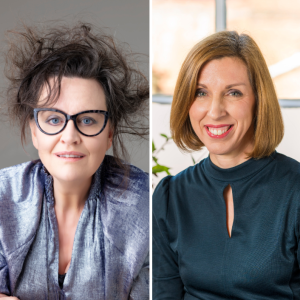
Tuesday Jun 04, 2024
Tuesday Jun 04, 2024
This week on the podcast Dr Louise meets comedian Anne Gildea, who will be joining Louise on her 34-date theatre tour this autumn, Hormones and Menopause: The Great Debate.
Anne, a founding member of Irish musical-comedy trio The Nualas talks to Louise about her diagnosis of breast cancer, aged 45, and her ensuing menopausal symptoms, which she was unprepared for. She explains how her research inspired her to create her own show, How to Get the Menopause and Enjoy It.
Louise and Anne discuss why they’ve come together to create a new show that will take you on a journey through the history of women’s health and lead you to see menopause and hormones in a whole different light.
Finally, the pair share some of the reasons they think people should come to the show:
- It'll be a wonderful night out - a real sharing experience where you can also have a laugh.
- There’ll be lots to learn with new content and a sharing of knowledge.
- You’ll be able to ask questions and gets answers. Some shows will also have doctors available in the interval but Louise will answer questions on the stage as well.
You can follow Anne on Instagram @annegildea
To buy tickets to the show click here
Click here to find out more about Newson Health
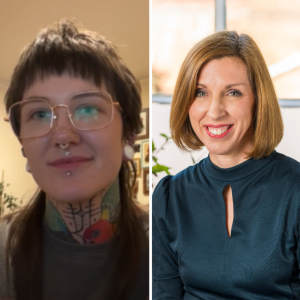
Tuesday May 28, 2024
258 - I’m 27 and perimenopausal: how testosterone helped my symptoms
Tuesday May 28, 2024
Tuesday May 28, 2024
This week on the podcast, Dr Louise is joined by Elin Sullivan, a young woman who suffered a myriad of symptoms for years before getting the right treatment.
Elin first experienced recurring urinary tract infections at 19 years old, and twice required hospitalisation. She also suffered from sweats, sleep disruption and fatigue, shaking and lichen sclerosus. After a chance encounter with Louise, she tried local HRT, which was transformative, and now takes testosterone to balance her low levels.
Elin talks about how hard it can be to experience perimenopausal symptoms at a young age and shares her tips for other younger women experiencing issues that they think might be down to their hormones:
- Although it can feel really hard, don't stop advocating for yourself. You may have self-doubt or worry that you’re wrong but keep pushing. My doctor was sick of seeing me, I was there probably every week, but don’t give up.
- Rather than just giving your doctor a list of your symptoms, show them when they were happening as well. Have a log of symptoms and anything that might have affected them on that day. This will help your doctor rule out things but also show if your diet, etc, has an influence.
- Don't be scared to try medications or suggestions. It might help but if it doesn’t it can potentially help your doctor decide the next step. I never believed local HRT could make such a big difference but am so glad I tried it.
Click here to find out more about Newson Health.

Tuesday May 21, 2024
257 - Oestrogen, your heart and the menopause
Tuesday May 21, 2024
Tuesday May 21, 2024
This week on the podcast Dr Louise is joined by Dr Felice Gersh, who is double board-certified in OB-GYN and Integrative Medicine, and specialises in female health, with a focus on managing female hormonal dysfunctions.
She is the author of the book PCOS SOS: A Gynecologist’s Lifeline to Naturally Restore Your Rhythms, Hormones, and Happiness, and recently published a paper on oestrogen and cardiovascular disease, and a 2021 paper on HRT.
Here she talks about the family of oestrogens and the important role of hormones on the heart. Finally, she shares three tips on improving heart and whole body health:
- Eat a lot of phytoestrogen-containing foods - so every kind of plant in all the different colours, including beans, nuts, seeds, fruits, vegetables. They are nature's gift to us.
- Sunlight is like happy medicine. Try to get sunlight in the morning, midday and watch the sunset every chance you get. This will help you to sleep better, make more serotonin, and help to set your master clock in your brain, which tends to drift when we lose our oestrogen production.
- Move. Your fitness status is more predictive of healthy longevity than your blood pressure. Think of your fitness, strength, flexibility and balance as a critical part of your life so get active in every way you can.
You can follow Dr Felice on Instagram @dr.felicegersh and Facebook @felicegershmd.
Click here for more about Newson Health.
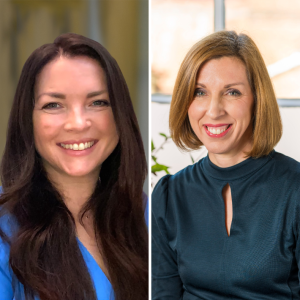
Tuesday May 14, 2024
256 - Spreading the word about menopause care in the US, and beyond
Tuesday May 14, 2024
Tuesday May 14, 2024
This week Dr Louise is joined by Aoife O’Sullivan, a family medicine doctor who trained in Dublin before completing a second family medicine residency at the University of Maryland.
After taking some time out to complete extra training in perimenopausal and menopausal care, including Newson Health’s Confidence in the Menopause course, Dr Aoife is passionate about providing more comprehensive and holistic care to women during midlife.
Dr Aoife share the ways clinicians, and all people, can educate themselves in order to improve the health of women in the US, and across the world:
- Take every opportunity to learn and educate. So join any local healthcare Facebook groups and pass on links to the Confidence in the Menopause website, the balance app, etc. Even if you reach one or two people like that, it will make a difference and they might reach another one or two people.
- Share small bites of information because it can be a little overwhelming. So when you're trying to reach somebody, give them small amounts of information at a time.
- Harness the power of friends. If everyone informs their friends and they all go to their doctors, obstetricians, gynaecologists and urologists, and ask questions, it will fuel discussion and increase knowledge.
You can follow Dr Aoife on Instagram @portlandmenopausedoc
Find out more about the Confidence in the Menopause course and click here for more about Newson Health.
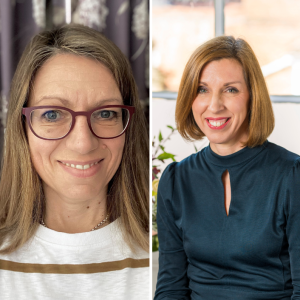
Tuesday May 07, 2024
Tuesday May 07, 2024
This week on the podcast Dr Louise is joined by a new colleague, Dr Louisa James, a psychiatrist who has recently joined the team at Newson Health.
Dr Louisa’s personal experience of the menopause prompted her to learn more about the impact of hormones, and incorporate her knowledge in her role as an NHS consultant psychiatrist in a home treatment service. Here she discusses the importance, and power, of asking patients about their hormones during a psychiatric appointment.
Finally, Dr Louisa shares her tips for thinking about your hormones alongside your mental health:
1.Consider whether this feels different to any previous episodes of depression you may have experienced or if your symptoms are fluctuating. Some women have suicidal thoughts or are depressed at certain times of the month. Track your symptoms and look at the fluctuations.
- Your history can affect your menopause. If you’ve had an episode of postnatal depression or PMDD, then you're more likely to experience mental health difficulties in the perimenopause.
- How do you feel about your life? Lack of joy rather than a sadness, the emotional lability, is often greater with a hormonal mental health problem whereas irritability, rage and impulsiveness can be greater with mental health problems.
Dr Louisa James is now offering consultations to existing Newson Health patients. Click here for details.
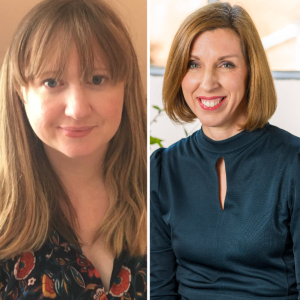
Tuesday Apr 30, 2024
254 - Dr Louise’s new paperback book: what’s new and who’s it for?
Tuesday Apr 30, 2024
Tuesday Apr 30, 2024
This week is a celebration of Dr Louise Newson’s new paperback book, a revised and updated version of the bestselling The Definitive Guide to the Perimenopause & Menopause. Dr Louise is joined by Kat Keogh, who worked on the book with her and is the head of editorial at Newson Health and across the balance website and app.
Here Kat turns the tables and asks Dr Louise the questions, discovering why the subject of HRT doses warranted more attention in the book, the importance of hearing directly from women experiencing the menopause as well as experts in their fields, plus how Louise felt sharing her personal experiences.
Finally, Dr Louise shares three reasons she thinks people should buy the book:
- The bright yellow cover is uplifting, and when you’re happier you’re healthier.
- It’s packed with information so you’ll learn something that will either help you or a loved one.
- Increasing awareness of hormones, perimenopause, menopause, plus PMS and PMDD will help women feel less lonely, more included and more listened to.
Pre-order the paperback book here
Click here to find out more about Newson Health.

Tuesday Apr 23, 2024
253 - Coping with the perimenopause when you’re a carer
Tuesday Apr 23, 2024
Tuesday Apr 23, 2024
This week on the podcast, Dr Louise is joined by Tova Gillespie, a working single parent to two daughters, one of whom has severe disabilities and complex medical needs. Here she talks about the challenges of being perimenopausal while being a carer and how it’s easy to not recognise or understand your symptoms.
Louise and Tova discuss how it’s easy for your own needs to end up at the bottom of the to-do list when you’re a carer or have a busy family life, and Tova shares three tips for anyone who may not be looking after themselves:
- Learn to ask for and accept help. People want to help, but very often they don't know how to offer it and our usual response can be ‘no, I don't need anything’. Instead, say straight out: ‘Please do my washing up. Or I have five loads of clean laundry that needs sorting. Or can you bring over some food?’ Anything really.
- If your health isn't what it should be, go to your GP. When you ring your GP, ask for an appointment to talk about perimenopause and hormones. They’ll know from the get go what it is you're after and if they have anyone in the clinic with an interest in that area, they’ll put you in with that person.
- Try to see the good every day. I do gratitude journalling, where I write down a minimum of three positive things that have happened that day, and they're not big. It could be the sun is shining. It could be the taste of that first sip of coffee in the morning. I train myself to look for the positive because it's so easy to get overwhelmed in the bad stuff.
Learn more about Tova on her YouTube channel. Or follow her on Instagram @parentXP
Click here to find out more about Newson Health.
